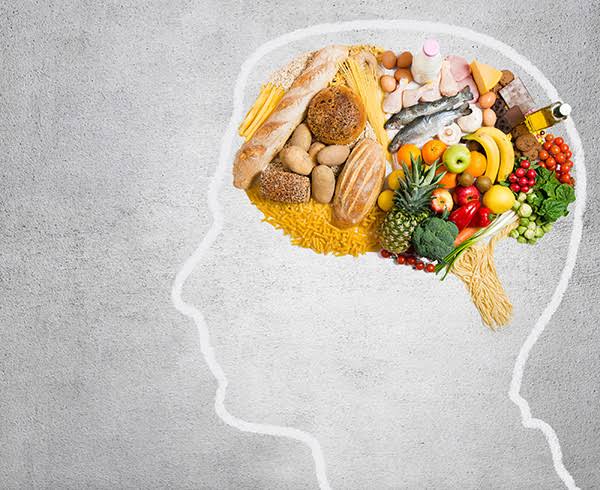
The following tips are helpful in maintaining a healthy, balanced diet.
Depression or feeling moody may affect a person’s appetite for food and their daily routine.
Depression can lead to a decrease in appetite in some people, and consequently a loss of weight. Or, on the contrary, it leads to more appetite for food, and thus an increase in weight. Antidepressants may similarly affect appetite.
The patient should consult his doctor when he fears that his depression will lead to weight loss or gain, and to learn more about the relationship of antidepressants with appetite.
Tips for maintaining a balanced diet
Many researchers are studying the relationship between food and depression, but there is not yet enough evidence to suggest the role of some foods in alleviating symptoms of depression.
On the other hand, the role of a balanced diet in maintaining general health cannot be neglected in any way.
“The most important thing is to eat regularly, and to have your daily meals contain the essential nutrients needed to build and maintain a healthy body,” says Dr Lynne Harbutle, a consultant dietician with Health and Social Services in Guernsey, England.
Carbohydrate-containing meals, such as rice and pasta, with plenty of fruits and vegetables, and some high-protein foods, such as meat, fish, legumes, and dairy products (which don’t contain a lot of fat, salt, or sugar), can provide your body with all the nutrients it needs.
There are many simple actions by which one can improve their dietary lifestyle. But a patient who suffers from severe depression and lacks any desire to shop or prepare foods should see his doctor and discuss possible treatment and support methods.
Eat regular meals. You should eat three meals a day, including breakfast. Breakfast helps give a person the energy needed to carry out daily activities. We can start our day with a bowl of whole wheat cereal, with some slices of banana and a glass of fruit juice. When feeling hungry between the main meals, you can eat healthy snacks, such as a piece of fruit.Increase your intake of whole wheat grains, fruits, vegetables, beans, lentils and nuts. These foods are rich in vitamins and minerals.Include some protein in every meal. Protein is necessary for growth and repair of the body. We find proteins in meat, fish, eggs, milk, cheese, lentils and beans.Avoid thirst. We need to drink 1.2 liters of fluid a day, to replace what we lose and avoid dehydration. A slight dehydration can cause a irritable mood. Some symptoms of dehydration include a lack of energy and a feeling of light-headedness.Refrain from consuming alcoholic beverages of all kinds. Alcoholic beverages are more harmful to people who take antidepressants.
When deciding to modify and improve the diet, reasonable and achievable goals must be set. It also warns against following severe diets that may not be nutritionally balanced. Alternatively, simple adjustments can be made to the person’s current diet. In the event that you want to make drastic changes to the diet, it is best to consult a doctor about this, who may refer the person to a dietitian.
Many treatment options are available for depression, including behavioral dialogue therapies, taking antidepressants, or others.
If the patient feels irritable for more than two weeks, he should consult a doctor, see solutions and treatment options, and find out what is most appropriate for his condition.






